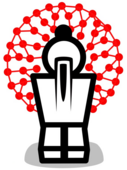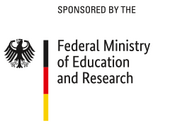Potentials
Knowledge Graphs (KGs) get an increased interest in research and industry to represent data, information and knowledge from various sources in ontology-based graph structures. In addition, research in Deep Learning (DL) addresses challenges in graph networks to incorporate knowledge into DL approaches with first promising results in the area of Graph Neural Networks. To utilize emerging potentials, SensAI combines both technologies and investigates how to incorporate knowledge into Deep Learning approaches in order to address challenges arising from real-world application scenarios as well as using it to tackle emerging contexts from knowledge work scenarios. These scenarios originate from our corporate memory approach when introduced to a company and used in daily work. Although we mostly speak of companies, they are applicable to any institutional setting: educational, governmental, agricultural, etc. Our approach is a human-centered assistance for knowledge work using personal KGs for representing the user’s mental model as well as their work environment. This is combined with enterprise KGs representing the information space of the company, leveraging various heterogeneous data silos to interconnected, machine understandable information and enabling various knowledge services.
Challenges
Challenges arise from the usually messy, sparse and diverse data sets, the effort for building and maintaining the evolving KGs using this heterogeneous data. Besides these company-driven challenges, our human-centered approach to engage users and respecting their personal views onto the company’s information space, requires dealing with their personal data and interactions, assistance in the evolving complexity of the corporate memory and the need to explain proposals from knowledge services.
Vision
Therefore, our vision for SensAI is a self-adapting personal assistant which is embedded in a user’s work environment and is part of and contributes to a corporate memory. To reach this vision, we will pursue three goals:
- Goal 1: personal and enterprise KG construction from messy, sparse and diverse enterprise data
- Goal 2: evolving and self-organizing contexts based on user activity evidences, especially exploring knowledge-based Deep Learning approaches for SensAI
- Goal 3: SensAI as a knowledge service economy with services embedded in the user’s work environment.
Pursuing these goals, SensAI combines the department’s experience in corporate memories with our insights of Deep Learning approaches and architectures to research a novel approach to human-centered assistance in knowledge work scenarios.


